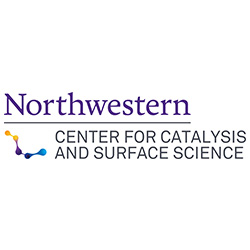
The Center for Catalysis and Surface Science, in partnership with the Paula M. Trienens Institute for Sustainability and Energy, the Department of Chemistry, and the Chemical and Biological Engineering Department, will host Dan Hickman, senior research and development fellow at Dow Chemical Company, for a special lecture on September 23. Attendees will be welcome to light snacks and refreshments during the event.
Where: Technological Institute | LR5
When: Monday, September 23, 3:00-4:00pm
Abstract
The conversion of carbon dioxide to fuels and chemicals, in which C-O bonds are broken and C-C and C-H bonds are created, requires significant amounts of energy input to overcome the endothermic reaction enthalpy. Many researchers dismiss this factor by pointing to an expectation that the cost of electricity from renewable energy sources will decrease enough in the future to enable this transformation. In addition, expectations of a new market for “carbon offsets” or a CO2 tax provide further motivation to explore carbon dioxide utilization via production of fuels and chemicals. What electricity price and carbon offset values will make conversion of carbon dioxide to ethylene, for example, attractive? Are some target molecules or reactions more attractive than others from an energy cost perspective? How do the various carbon dioxide conversion options compare with
alternatives such as battery electric vehicles or carbon capture and sequestration? Besides energy cost, another poorly understood factor in the prioritization of carbon dioxide mitigation options is the cost of capital.
Because of the capital intensity of the large volume process industries for production of fuels and chemicals, change is a necessarily slow process, with asset replacement rates in the range of 2-4% (25- to 50-year average asset life). Given the limited availability of capital for new process technology, lower capital alternatives will enable faster turnover to new technology, and the required capital investments for new technology must be small enough to meet technoeconomic requirements. How do we value capital and compare alternative process technologies? What is the capital footprint of alternative technologies such as electrochemical cells? The research community must be aware of the energy and capital barriers to carbon dioxide utilization and define research programs that have the highest potential to overcome these barriers to implementation.
Speaker Bio
Dan Hickman is a Senior R&D Fellow in the Engineering and Process Science department of Dow’s Core Research & Development organization. He received his B.S. in chemical engineering from Iowa State University (1988) and his Ph.D. in chemical engineering from the University of Minnesota (1992). In 31 years with Dow, Dan has served as a subject matter expert and technical leader in reaction engineering and process development for numerous reaction systems across many Dow businesses and technologies. His industrial reaction engineering experience includes working with stirred tank reactors, fixed bed reactors, trickle bed reactors, and fluidized bed reactors. His contributions at Dow include the conceptual design of new reactor systems for three commercial processes and the development of training and resources that facilitate efficient and reliable reactor scale-up from the laboratory. Dan holds 25 patents and has authored 32 journal articles and book chapters and more than 200 internal Dow reports. Dan was named the Mid-Michigan AIChE Chemical Engineer of the Year in 2014, received the CRE Practice Award from the Catalysis and Reaction Engineering Division of AIChE in 2015, was named an AIChE Fellow in 2023, and currently serves the global reaction engineering community on the board of directors for International Symposia on Chemical Reaction Engineering, Inc.
About the Center for Catalysis and Surface Science (CCSS)
The Center for Catalysis and Surface Science (CCSS) promotes interdisciplinary research fundamental to the discovery, synthesis, and understanding of catalysts and catalytic reactions essential to modern society. As a part of the Paula M. Trienens Institute for Sustainability and Energy, we apply our fundamental advances in catalysis science towards applications in alternative fuels, abatement of harmful emissions, resource recovery concepts, new processing routes, and many other strategies towards making chemicals more sustainable.
Audience
- Faculty/Staff
- Student
- Post Docs/Docs
- Graduate Students
Interest
- Environment